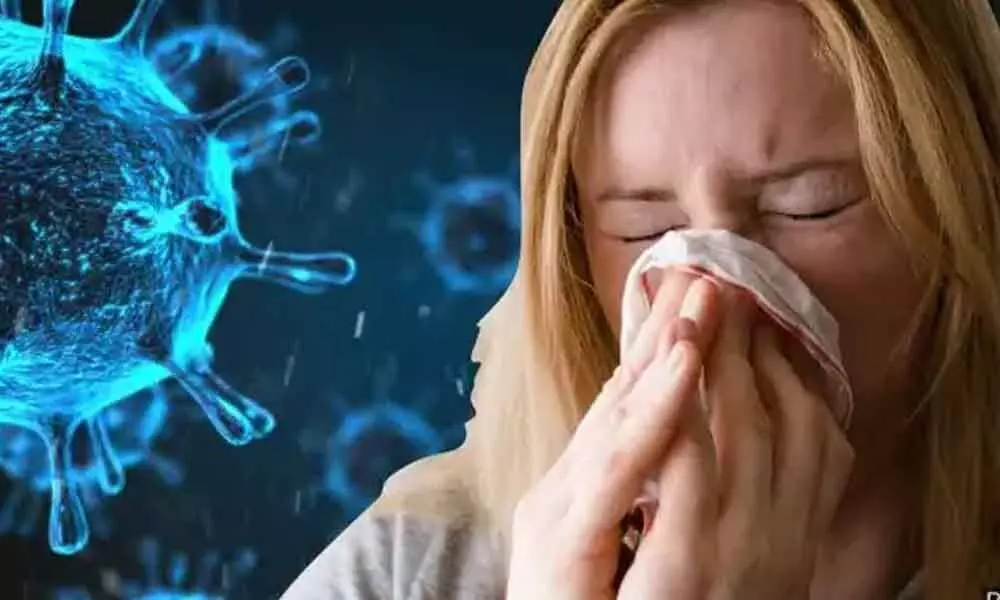Live
- Man held for siphoning Rs 8.14 cr in trading scam
- Don’t pressurise students for fees
- Almonds are a key to faster muscle recovery after exercise: Study
- No govt faced so much criticism than Revanth-led Cong in 11 months: Kavitha
- Balineni signed SECI agreement, says Chevireddy
- Infant kidnapped from Niloufer Hospital rescued, cops arrest 3
- Sunny Leone reflects on challenges and preparations for ‘Shero’
- Hyderabad Saree Festival 2024 kicks off in a grand manner
- Speed up Veligonda project works, CPM urges govt
- 10 career opportunities with a public policy degree
Just In
Coronavirus may resemble common cold in future, say scientists


Coronavirus may resemble common cold in future, say scientists
- Four common cold-causing coronaviruses have been circulating in humans for a long time. Natural infection in childhood provides
- immunity that protects people later in life against severe disease, but it doesn't prevent periodic reinfection, says Jennie Lavine
New Delhi: SARS-CoV-2, the virus that causes COVID-19, may resemble the mild cold-causing coronaviruses that currently circulate in humans if it becomes endemic and most people are exposed in childhood, according to a study.
The modelling study, published on Tuesday in the journal Science, is based on research of the four common cold coronaviruses and SARS-CoV-1.
The analysis of the immunological and epidemiological data for these viruses helped the researchers to develop a model to predict the trajectory of SARS-CoV-2 as it becomes endemic, when the virus circulates in the general population.
The researchers noted that four common cold-causing coronaviruses have been circulating in humans for a long time and almost everyone is infected at a young age.
Natural infection in childhood provides immunity that protects people later in life against severe disease, but it doesn't prevent periodic reinfection, said Jennie Lavine, from Emory University in the US, first author of the study.
The research suggests that endemic SARS-CoV-2 may become a disease of early childhood, where the first infection occurs between 3 and 5 years old, and the disease itself would be mild. Older individuals could still become infected, but their childhood infections would provide immune protection against severe disease, according to the researchers. How fast this shift comes depends on how fast the virus spreads and what kind of immune response the SARS-CoV-2 vaccines induce, they said.
The model suggests that if the vaccines induce short-lived protection against becoming reinfected but reduce the severity of the disease, as is the case with other endemic coronaviruses, SARS-CoV-2 may become endemic more quickly.
"This model assumes immunity to SARS-CoV-2 works similar to other human coronaviruses. We don't really know what it would be like if someone got one of the other coronaviruses for the first time as an adult, rather than as a child, Lavine said.
The model predicts that the infection fatality ratio for SARS-CoV-2 may fall below that of seasonal influenza (0.1 per cent), once an endemic steady-state is reached.
"We are in uncharted territory, but a key take-home message from the study is that immunological indicators suggest that fatality rates and the critical need for broad-scale vaccination may wane in the near term," said Ottar Bjornstad, a professor and epidimiologist at Penn State.

© 2024 Hyderabad Media House Limited/The Hans India. All rights reserved. Powered by hocalwire.com






